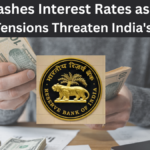The Central Government is all set to roll out the Unified Pension Scheme (UPS) starting April 1, 2025, marking a significant transformation in the pension structure for public sector employees. Designed as a hybrid model, UPS merges the advantages of both the Old Pension Scheme (OPS) and the National Pension System (NPS)—while offering the safety net of a minimum guaranteed pension of ₹10,000.
Let’s break down the scheme, focusing on pension guarantees, gratuity entitlements, voluntary retirement benefits, and more.

Key Highlights of the Unified Pension Scheme (UPS)
-
Minimum guaranteed pension of ₹10,000 per month for employees with at least 10 years of service
-
Fixed pension for employees who complete their full service tenure
-
Integrates features from both OPS and NPS
-
Applies to all eligible central government employees from April 1, 2025
Gratuity Benefits Under the Unified Pension Scheme
One of the major concerns raised by employees was whether the UPS would include gratuity benefits like those in OPS and NPS. The Finance Ministry confirmed during a Parliament session that gratuity benefits will be provided under the Central Civil Services (Payment of Gratuity under National Pension System) Rules, 2021.
Types of Gratuity Benefits
| Type of Gratuity | Eligibility Criteria | Payout Rules |
|---|---|---|
| Retirement Gratuity | Minimum 5 years of government service | 1/4th of basic pay + DA for every 6 months of service; max 16.5 times salary or ₹25 lakh, whichever is lower |
| Death Gratuity | No minimum service requirement in case of death in service | Based on service duration (see table below) |
Death Gratuity Payout Structure
| Service Duration | Gratuity Payable |
|---|---|
| Less than 1 year | 2 × Last Salary |
| 1 to 5 years | 6 × Last Salary |
| 5 to 11 years | 12 × Last Salary |
| 11 to 20 years | 20 × Last Salary |
| More than 20 years | ½ of last salary for every 6 months served |
Will All Government Employees Receive ₹25 Lakh as Gratuity?
Not necessarily. While the maximum gratuity limit has been increased to ₹25 lakh, the actual amount depends on your salary and the number of years you’ve served.
Gratuity Calculation Formula
-
Last salary includes Basic Pay + Dearness Allowance (DA).
-
The payout is based on a well-defined formula rather than a flat rate.
Voluntary Retirement and Assured Payouts: What You Need to Know
A key question raised in Parliament by Rajya Sabha MP Javel Ali Khan was whether assured payouts would be available for employees who voluntarily retire after 25 years of service.
Government’s Clarification
Minister of State for Finance, Pankaj Chaudhary, clarified that:
-
The UPS is a fund-based pension model, meaning benefits rely on timely contributions and investment returns.
-
Employees who voluntarily retire after 25 years will begin receiving pension payouts from their original superannuation date, had they remained in service.
Summary: Why UPS Is a Step Forward
The Unified Pension Scheme strikes a balance between flexibility and financial security, aiming to simplify retirement benefits for government employees.
-
Offers a minimum assured pension of ₹10,000
-
Provides gratuity benefits in line with current pension systems
-
Ensures transparency and structure in pension calculations
-
Supports long-term retirement planning
Frequently Asked Questions (FAQs)
1. Who qualifies for the ₹10,000 minimum pension under UPS?
Employees who have completed at least 10 years of continuous service are eligible for the minimum guaranteed pension.
2. Will every employee receive ₹25 lakh as gratuity?
No. The gratuity is calculated using a formula that considers your basic salary, DA, and service tenure. The maximum limit is ₹25 lakh, but not everyone will reach that cap.
3. Is the Unified Pension Scheme replacing NPS entirely?
No, it’s a hybrid model that incorporates features from both OPS and NPS to provide a more balanced and reliable pension structure.
4. If I opt for voluntary retirement after 25 years, when will my pension start?
Your pension payouts will begin from the date you would have retired if you had continued in service until the standard age of superannuation.
Click here to learn more




